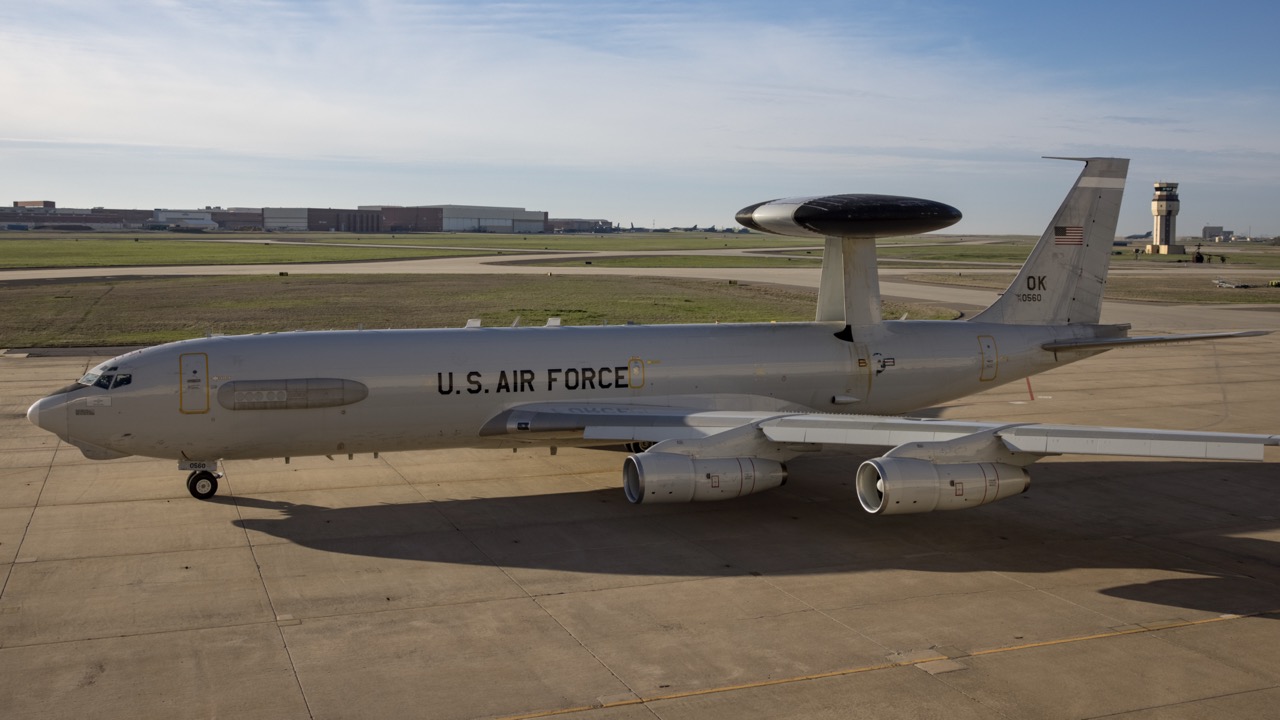


Airmen from the U.S. Air Force (USAF) 552nd Air Control Wing gathered to bid farewell to aircraft 0560 - eyes in the Sky, during an event commemorating the aircraft’s rich history March 31.
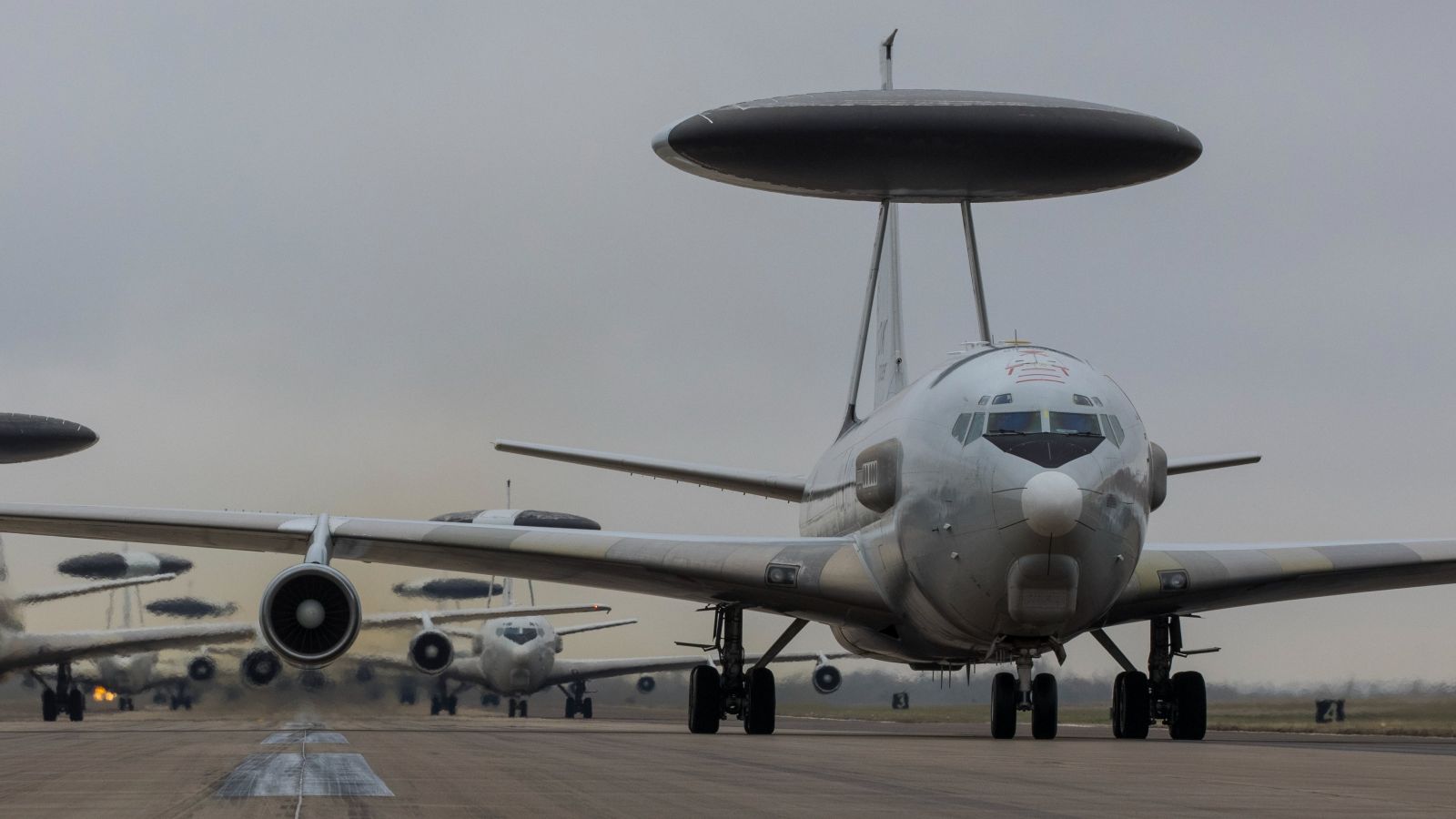
Aircraft 0560 is the first E-3 Sentry Airborne Warning Air Control System aircraft to retire from the fleet this year. As part of the FY23 President’s Budget Request, the Department of the Air Force announced its intent to divest 13 E-3 AWACS aircraft and redirect funding to procure and field a replacement.
“While some may see the divestment as the end of an era, the retirement of this aircraft marks the beginning of modernization for the 552nd,” said Col. Keven Coyle, 552nd ACW commander. “Despite a fleet reduction the mission will remain the same, providing worldwide management as well as command and control operations as required.”
The final destination for aircraft 0560 will be with the 309th Aerospace Maintenance and Regeneration Group (AMARG) at Davis-Monthan Air Force Base.
AMARG, America’s Airpower Reservoir, is a one-of-a-kind specialized facility within the Air Force Sustainment Center, providing aircraft preservation and storage, parts reclamation, disposal preparation, aircraft regeneration to flying status, and depot maintenance for America's military services, U.S. government agencies, and allied governments.
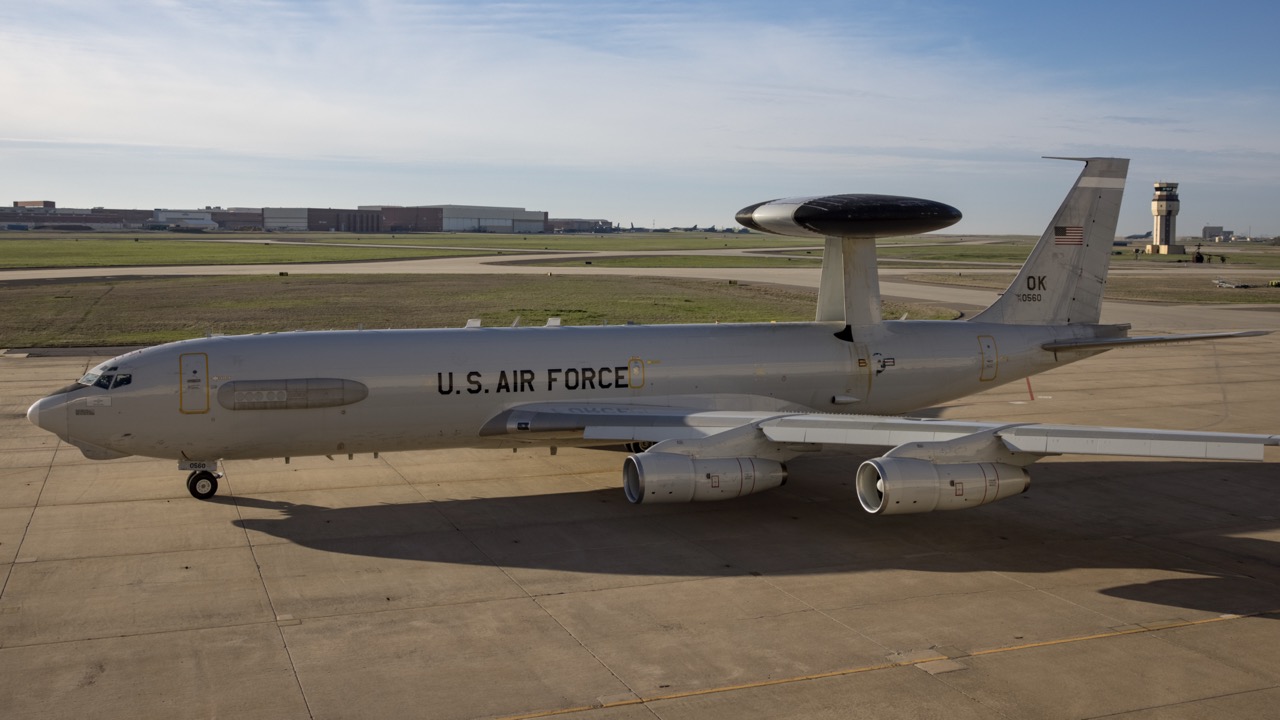
52nd ACW says,
"By retiring the E-3, the 552nd can focus on prioritizing the health of the remaining fleet. Divesting part of the fleet will improve sustainability by adding high demand, low availability parts back into the supply chain, providing a temporary improvement for aircraft availability."
The E-3 Sentry's airframe, which is a modified Boeing 707-320B Advanced model, includes a rotating radar dome (rotodome), uprated hydraulics from 241 to 345 bar (3500–5000 PSI) to drive the rotodome, single-point ground refueling, air refueling, and a bail-out tunnel or chute.
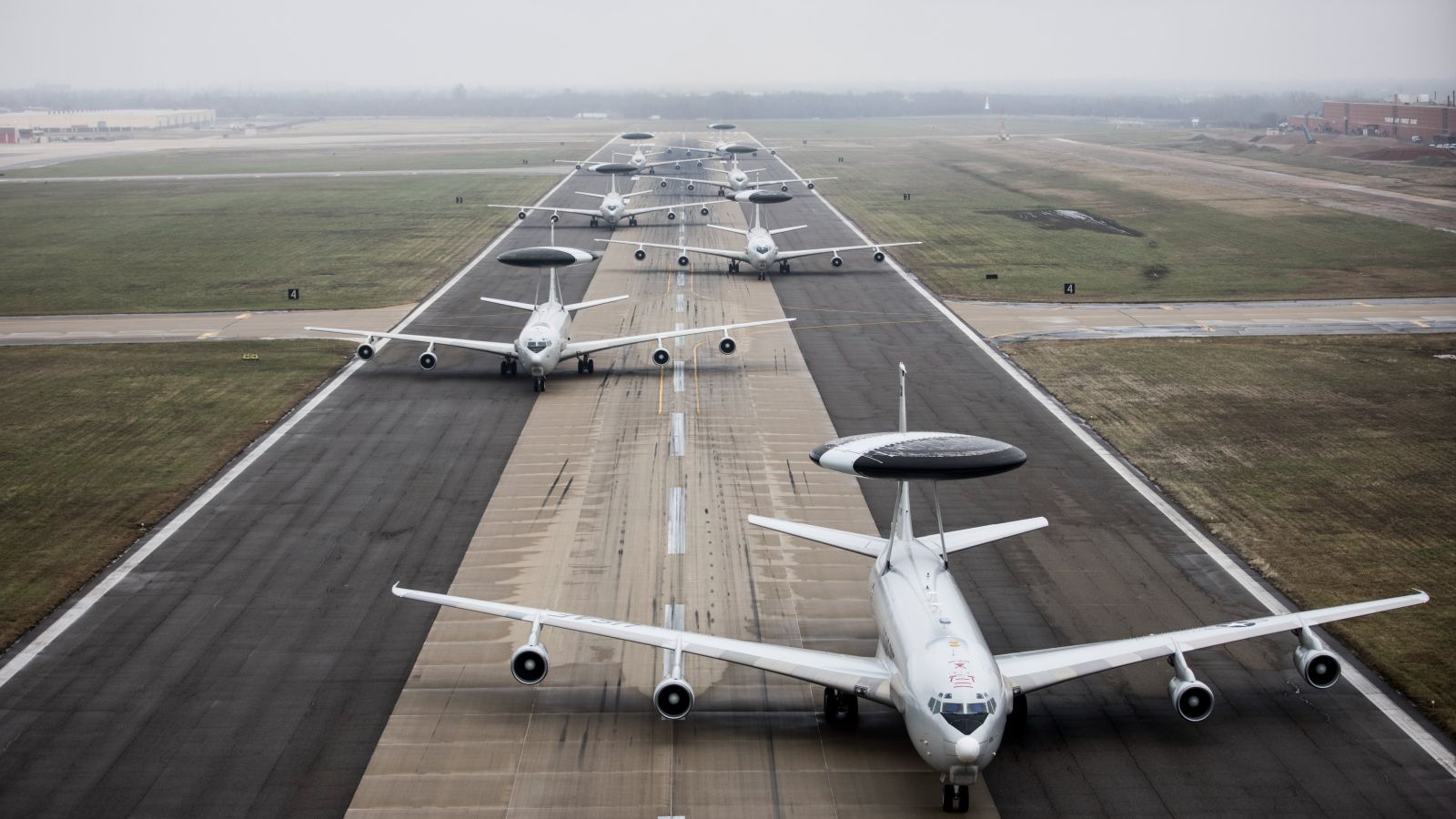
Looking into the future, the Air Force has considered and assessed suitable E-3 AWACS replacements to align with the operational needs. On April 26, 2022, the Air force publicized its intent to replace a portion of the AWACS with the E-7A aircraft.
The Boeing E-7A is the only platform capable of meeting the requirements for the Defense Department’s tactical battle management, command and control and air moving target indicator capabilities.
“After extensive market research and analysis, it was determined the E-7 is the most compatible to meet our requirements,” stated Coyle. “The aircraft will not only provide modernization, but also establish a tri-lateral information and manning exchange program with the Royal Australian Air Force and the United Kingdom’s Royal Air Force, who already operate on the E-7.”
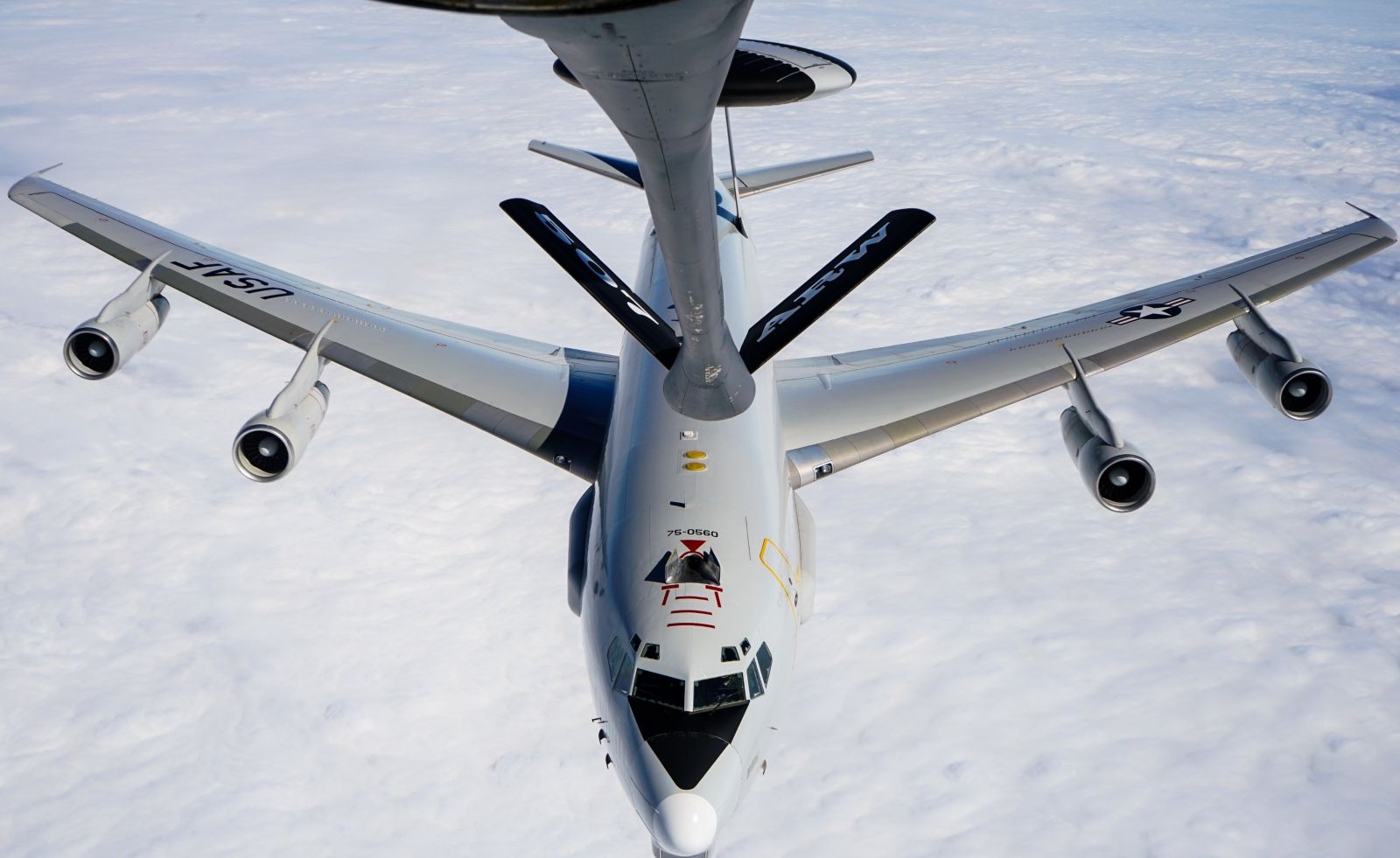
For USAF, the first E-3 AWACS arrived at Tinker March 23, 1977. Since then, most of the aircraft have been housed and sustained here. Although the basing strategy for the E-7 has not yet been finalized, the existing infrastructure will be considered as basing and sustainment options are evaluated. The E-3 AWACS community values the long-standing relationship between Tinker AFB and Oklahoma.
However, NATO intends to extend the operational status of its AWACS until 2035 by significantly upgrading fourteen aircraft in the Final Lifetime Extension Program (FLEP) between 2019 and 2026.
Upgrades include the expansion of data capacity, expansion of bandwidth for satellite communications, new encryption equipment, new HAVE QUICK radios, upgraded mission computing software and new operator consoles.
Source : 552nd ACW
